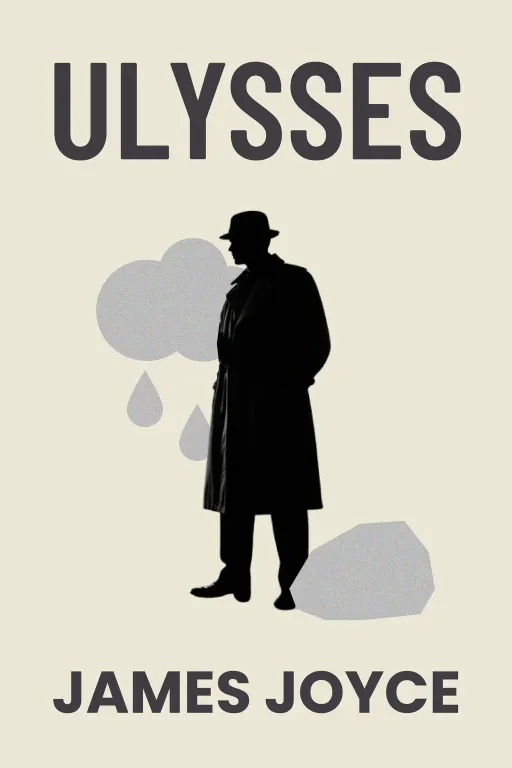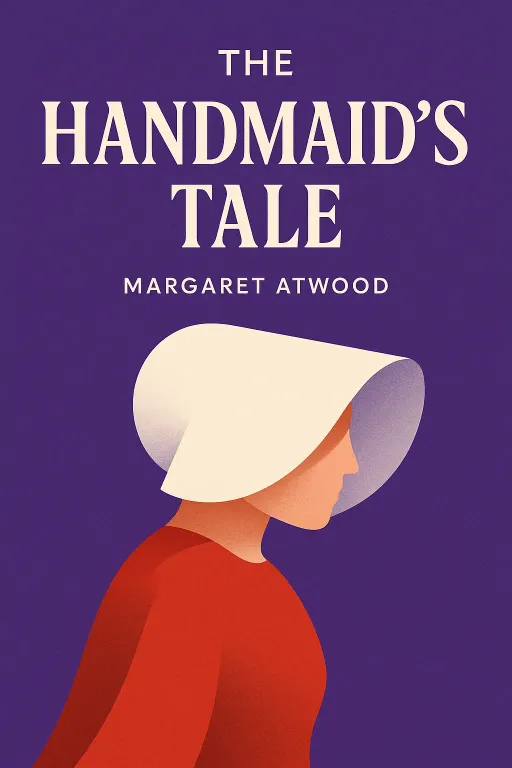
Ulysses
9 minIntroduction
Narrator: Imagine a stage where reality dissolves. The setting is Dublin's red-light district, a place called Nighttown, but the landscape is the human subconscious. Here, a middle-aged advertising canvasser is put on trial for his sexual anxieties, transforming into a woman, a messiah, and a cuckold in a dizzying sequence of hallucinations. At the same time, a young, tormented artist is confronted by the decaying ghost of his own mother, who rises from the floorboards to accuse him of her death. This phantasmagoric, often grotesque, carnival of the mind is not a fever dream; it is the narrative climax of one of the most challenging and revolutionary novels ever written. The book is Ulysses by James Joyce, and it uses this descent into chaos to explore the very nature of consciousness, guilt, and identity, all within the span of a single day.
The Stage of the Subconscious
Key Insight 1
Narrator: James Joyce’s Ulysses is famous for its stream-of-consciousness style, but in the novel's longest and most surreal section, known as the "Circe" episode, this technique undergoes a radical transformation. The narrative abandons traditional prose and becomes a script for a play. The inner turmoil of the characters, Leopold Bloom and Stephen Dedalus, is no longer just described through internal monologue; it is externalized and acted out in a hallucinatory drama. This is a world where thoughts, fears, and repressed desires become tangible characters and events.
The setting of Nighttown is not merely a backdrop but a catalyst. It is a space where societal norms collapse, allowing the subconscious to run rampant. Joyce uses this disorienting, dreamlike effect to argue that our internal lives are a chaotic blend of memory, fantasy, and anxiety. The narrative structure mirrors this fragmentation, blurring the lines between what is real and what is imagined. This experimental style is not just a literary gimmick; it is the only way to accurately portray the complex psychological states of its characters as they descend into a world governed not by logic, but by the raw forces of their own minds.
The Specters of Guilt and Inadequacy
Key Insight 2
Narrator: At the heart of the Nighttown chaos are the two protagonists, each haunted by his own personal demon. For Leopold Bloom, the central anxiety is his profound sense of inadequacy, primarily rooted in his wife Molly’s impending affair with her manager, Blazes Boylan. Throughout the day, Bloom is tormented by the knowledge of this betrayal, and in Nighttown, his subconscious puts him on a surreal trial. His fantasies are a series of humiliating and emasculating scenarios. He is accused of various sexual perversions, celebrated as a new messiah, and then summarily condemned. These visions reveal a man grappling with his own passivity and his inability to assert control over his marriage and his masculinity. The affair with Boylan becomes the focal point for all his insecurities, externalized in a grotesque spectacle of public shaming and bizarre transformation.
Meanwhile, the young artist Stephen Dedalus confronts a different, though equally powerful, ghost: the unresolved guilt he feels over his mother's death. Stephen had refused to kneel and pray at her deathbed, an act of intellectual rebellion that has left him spiritually crippled. In a brothel, under the influence of alcohol, this guilt manifests in a horrifying vision. The story of this encounter is one of the book's most chilling moments. As Stephen dances, his mother's emaciated figure rises through the floor, her body wasted by disease. She speaks to him, her voice a mix of maternal love and ghastly accusation, urging him to repent. When he refuses, she transforms into a terrifying specter. Overwhelmed by horror and self-loathing, Stephen screams, "Non serviam!"—"I will not serve!"—and uses his walking stick to smash the brothel’s chandelier, a desperate, violent attempt to shatter the memory that holds him captive. This vision reveals the destructive power of unresolved trauma and the psychological toll of a conscience at war with itself.
A Nation's Identity in a Street Brawl
Key Insight 3
Narrator: While Bloom and Stephen are lost in their personal hells, their struggles are set against the backdrop of a larger social and political turmoil: the complex and fraught identity of Ireland in the early 20th century. Joyce masterfully weaves this theme into the narrative, showing how personal decay reflects a national malaise. This comes to a head in a raw and chaotic street fight.
After fleeing the brothel, a drunken Stephen gets into an argument with two British soldiers, Private Carr and Private Compton. The dispute begins over a perceived slight, but it quickly escalates into a philosophical and political confrontation. Stephen, with his characteristic intellectual arrogance, mocks the soldiers' authority and their blind patriotism. He delivers one of the book's most famous lines, subverting the very idea of nationalist sacrifice: "Let my country die for me. Up to the present it has done so... Damn death. Long live life!" This rejection of martyrdom infuriates Private Carr, who embodies a crude, violent jingoism. He screams, "I’ll wring the bastard fucker’s bleeding blasted fucking windpipe!" The argument culminates in Carr punching Stephen, knocking him to the ground. In this moment, the abstract tensions between Ireland and its English colonizers, between intellectualism and brute force, and between order and anarchy become brutally physical. Bloom, the ever-present observer and outsider, rushes in to protect Stephen, playing the role of the compassionate peacemaker in a world spiraling into senseless violence.
The Meticulous Accounting of a Chaotic Mind
Key Insight 4
Narrator: In a book defined by its sprawling, chaotic, and often overwhelming narrative, one of the most revealing aspects of Leopold Bloom’s character is his persistent, almost obsessive, need for order. This is illustrated not in a grand gesture, but in the quiet, meticulous details of his inner world. Amidst the psychological maelstrom of his day—worrying about his wife's affair, attending a funeral, and navigating the hallucinatory landscape of Nighttown—Bloom keeps a running tally of his finances.
This is presented as a simple list of data: his income from an ad commission and a loan to Stephen, and his expenses for the day. He accounts for every penny, from the pork kidney he bought for breakfast for three pence, to the one shilling and sixpence for a bath, to the seven pence for lunch, and the four pence for a bar of chocolate. This financial budget, derived from his internal monologue, provides a stark contrast to the surreal chaos surrounding him. It reveals a man desperately trying to maintain control and stability in a world, both internal and external, that offers him none. It is the anchor of the ordinary man, the pragmatist who, even while his subconscious is on trial, still remembers to account for a square of soda bread. This small detail highlights Bloom's fundamental nature: he is a methodical, compassionate, and deeply human figure trying to balance his ledger in an unbalanced world.
Conclusion
Narrator: The single most important takeaway from James Joyce's Ulysses is its radical redefinition of the epic. The novel demonstrates that the heroic journeys of antiquity, the Odysseys of ancient myth, are not confined to gods and kings on distant seas. They are mirrored in the internal, often unglamorous, struggles of ordinary people navigating a single, mundane day. The great battles are not fought with swords on a battlefield, but with memory and conscience in the labyrinth of the human mind. Bloom's journey through Dublin is an odyssey of empathy, while Stephen's is a battle against the ghosts of his past.
Ulysses remains a monumental and challenging work because it refuses to simplify the human experience. It presents consciousness not as a clear, linear narrative, but as a messy, associative, and deeply layered flood of sensation and thought. The book’s ultimate challenge to the reader is to look past the chaos and find the profound humanity within it—to recognize the epic scale of a single mind and to ask: what universe of trial, triumph, and contradiction exists within our own ordinary day?









